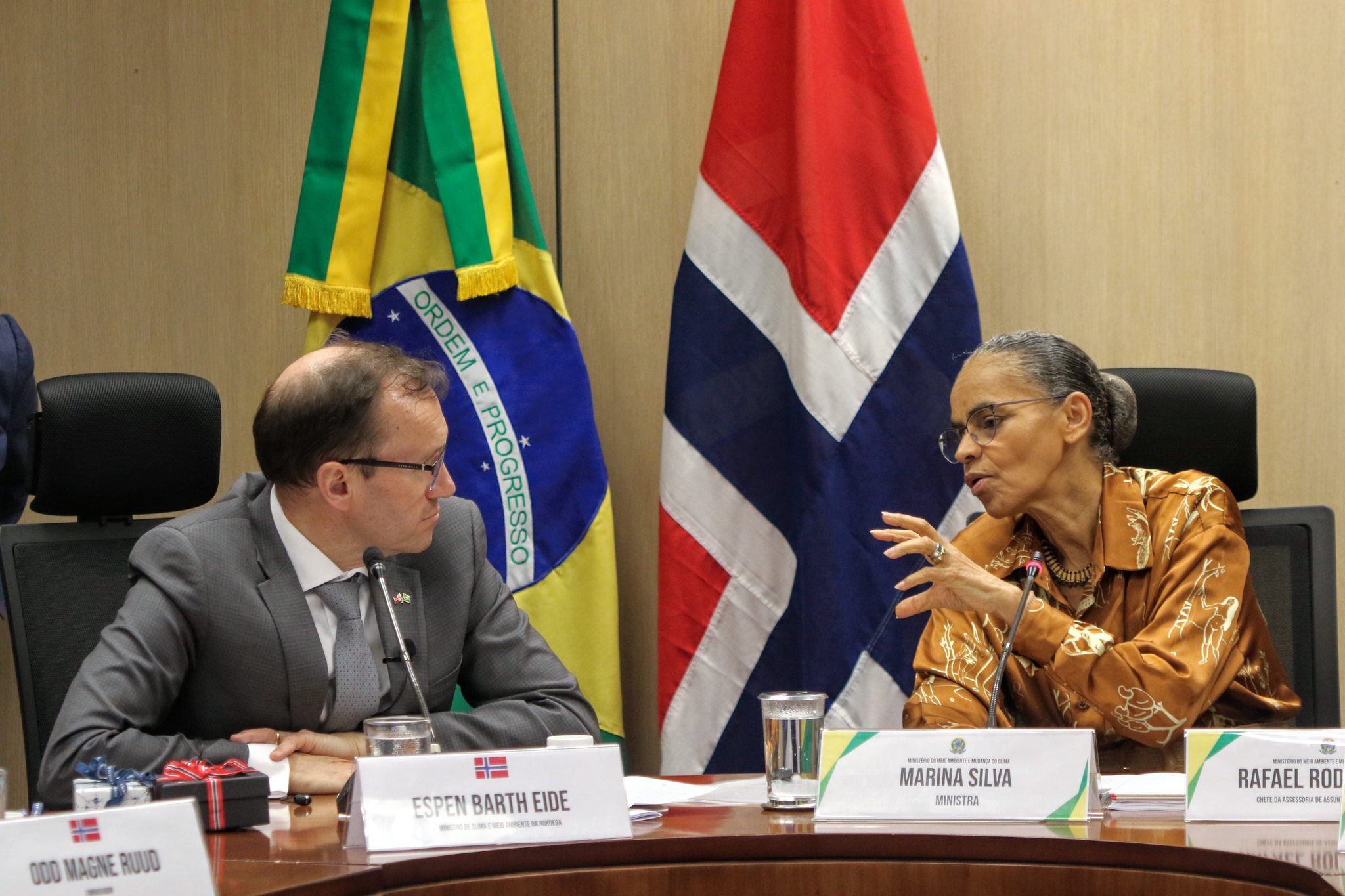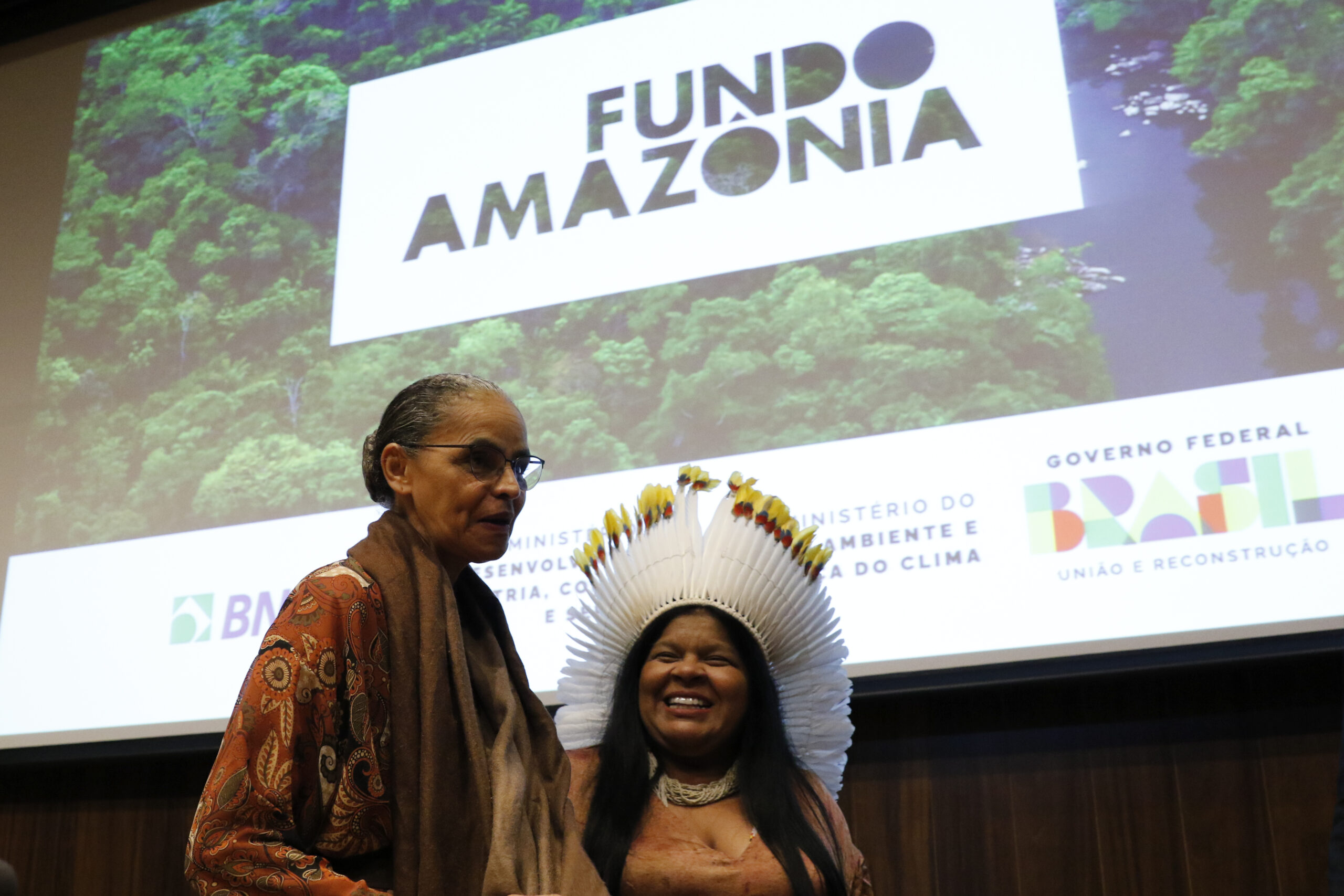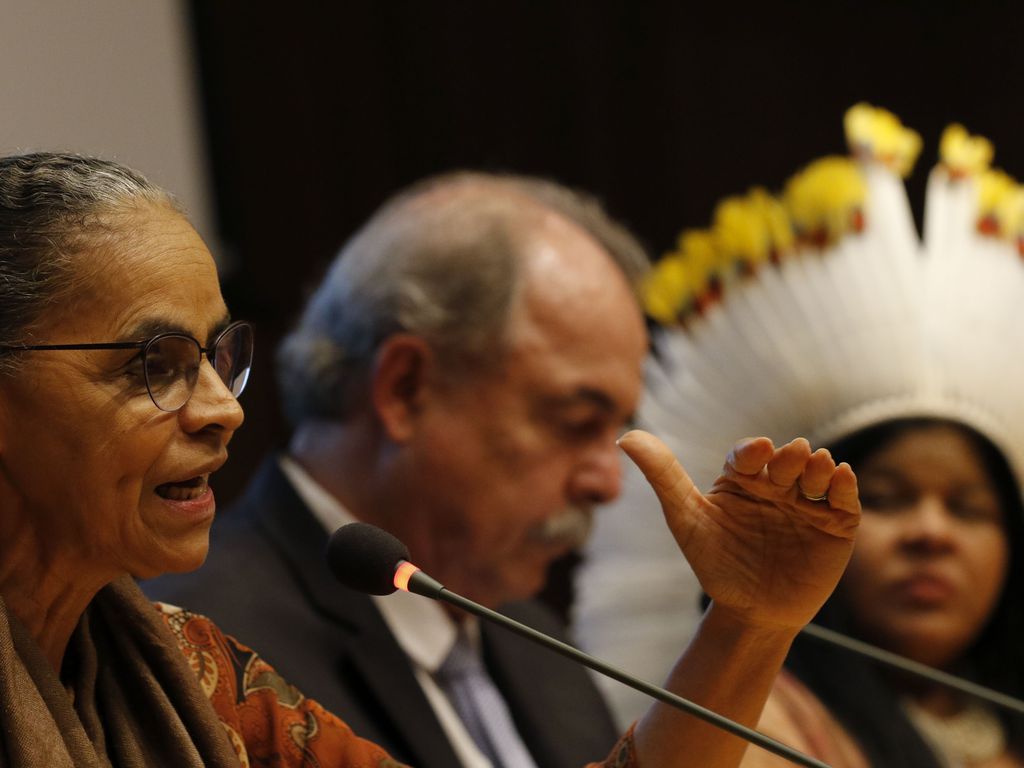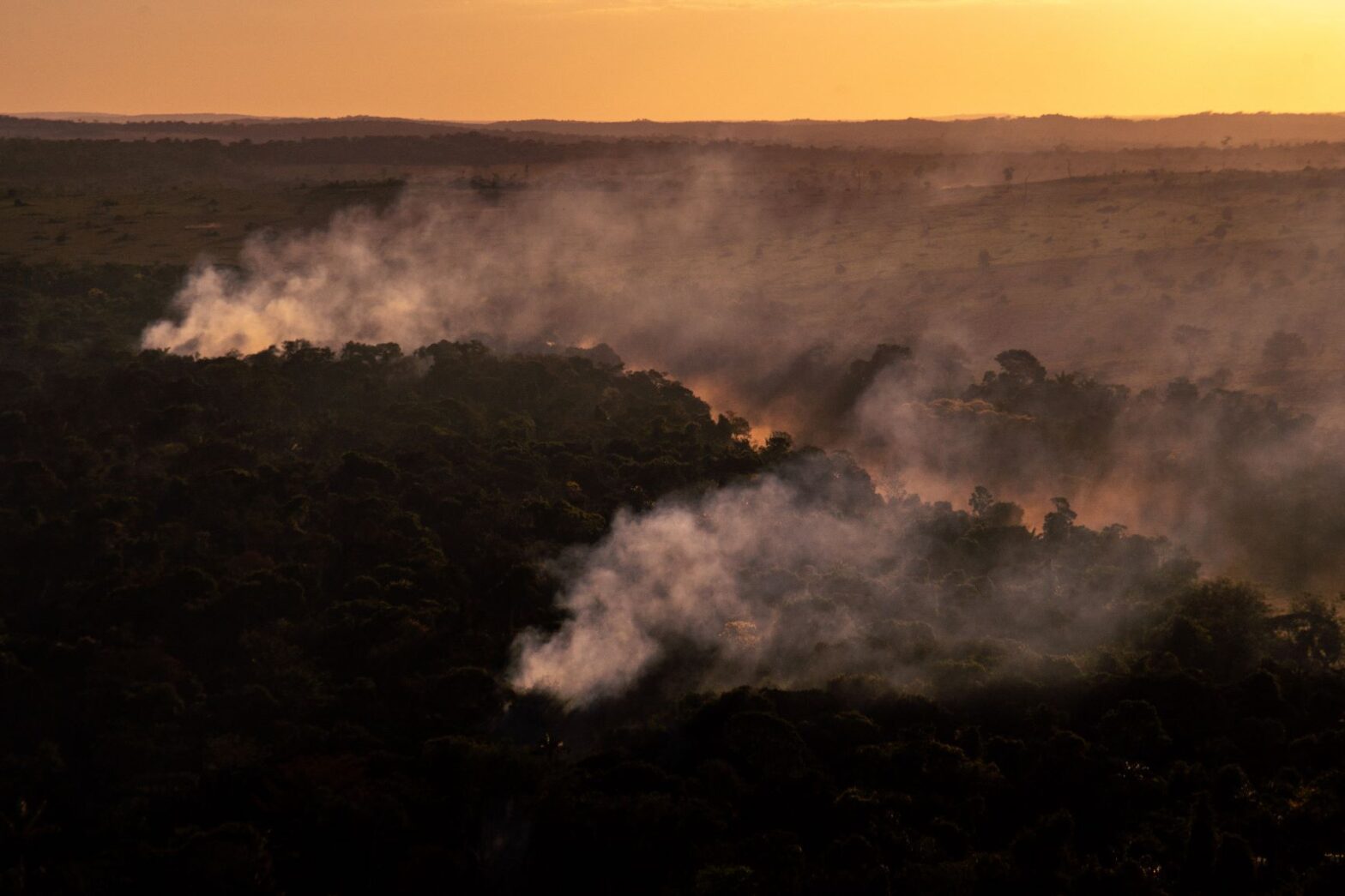Main donor Norway may increase contributions; The country’s minister of the environment is visiting Brazil until Saturday (25) and reaffirms commitment, while adding that they support Brazil in the mobilization of additional resources. Switzerland, France, Spain, the UK and the US have also expressed interest in investing in the fund.
The Amazon Fund: A project that captures and invests national and international resources to enhance the conservation and sustainable use of the Amazon., the main fundraising mechanism for the environment in Brazil, has taken on even more importance in the government thanks to intense negotiations to attract new donors, initiated at COP27. At Itamaraty, more diplomats are dedicated to the climate issue after an internal restructuring that took place in January. France, Switzerland, Spain and the UK are just a few of the countries that are considering joining in the coming months, after the US declared “initial support for the Amazon Fund.” Meanwhile, Germany, which has collaborated with the initiative since 2010, also announced, in January, a new contribution to be transferred throughout 2023.
Despite the new interested countries, Norway is expected to remain the main funder of the initiative. The country was responsible for more than 90% of the donations raised up until the fund was suspended (read more below about the fund’s values) in 2019 when Jair Bolsonaro became president.

This week, Norway’s minister of the environment Espen Barth Eide has meetings with officials in Brasilia to discuss “greater cooperation.” He met with minister Marina Silva on Wednesday (22) and reaffirmed the bilateral partnership in climate and forests, which began in 2008 with the launch of the Amazon Fund. Eide said they will support Brazil in mobilizing additional resources.
During his visit to Brasilia, which is expected to last until Saturday (25), the Norwegian minister should also meet with the minister of indigenous peoples, Sonia Guajajara, the minister of justice Flávio Dino and other government authorities and representatives of indigenous peoples and civil society.
Reinforcement at Itamaraty
In addition to being considered stable and attractive by outside investors, the Amazon Fund is also the main banner of Brazilian diplomacy in international discussions on the environment. Presented as an important issue for the Lula administration, the climate agenda has become a priority at the Ministry of Foreign Affairs, one of the nine cabinets that have a permanent chair on the Fund’s advisory committee.
“As an arm of the federal government, Itamaraty is more a reflection of the administration’s priorities and this is an administration that is prioritizing the climate agenda. As such, there was a process of restructuring, and not only in Itamaraty. A number of ministries created areas focused on the environment and climate change,” explains diplomat Daniel Machado da Fonseca, head of the Climate Action Division at Itamaraty.

“Inside Itamaraty, the climate area, which was traditionally a division of the department of the environment, became a department in itself. So that means there are more diplomats working on it. It’s an area that has gained importance,” adds Machado da Fonseca.
Inside Itamaraty, the climate area, which was traditionally a division of the department of the environment, became a department in itself. So that means there are more diplomats working on it. It’s an area that has gained importance.
Daniel Machado da Fonseca, head of the Climate Action Division at Itamaraty
Since its creation in 2008, the initiative has received R$3.4 billion in donations. The government of Norway is largely responsible for these resources, having donated 93.8% of the total sum, followed by Germany, which accounted for 5.7%, and Petrobras, which contributed 0.5%. Therefore, thanks to financial investments contracted in 2018, the fund currently has R$5.4 billion in resources, according to the BNDES balance sheet published in February.
In other words, the amount exceeds the total donated by the participating countries because, while the fund was suspended under the Bolsonaro administration, the National Bank for Economic and Social Development (BNDES), which manages the initiative, invested the resources. As such, the fund currently has about R$ 3.6 billion available for use — R$1.8 billion of the R$5.4 billion have been already earmarked as they were approved for projects supported by the mechanism.
Resumption after shutdown
Despite the substantial amounts, much of the money has been frozen since 2019, when the Bolsonaro government abolished several committees connected to the federal administration. As the rules of the Amazon Fund determine that it can only operate under the auspices of the Amazon Fund's Advisory Committee (COFA), the initiative was virtually paralyzed: It stopped receiving new projects and the donor countries froze new contributions. Only projects that had already been contracted before the shutdown have continued to receive funds in the last four years.
Now that the fund was reactivated with decrees signed by Lula on hs first day of office, the administration has sought to attract new donors while still defining the destination for over R$3 billion in available resources. At the first COFA meeting after its reinstatement, on February 15th, the group defined that the new projects supported by the Amazon Fund should primarily cover three areas: monitoring and control, studies for land management and support for indigenous and traditional populations.
In a statement, the Ministry of the Environment (MMA) told InfoAmazonia that, in addition to establishing these priority areas, the meeting also determined that new projects “can be presented at any time, and will be evaluated by the technical teams.”
“The revival of the fund initially adopted criteria that had been applied until 2018, and the new guidelines will be identified by the PPCDAm: PPCDAm is a plan that was launched in 2004 to reduce deforestation and greenhouse gas emissions generated by the loss of native vegetation in the Legal Amazon., which will be finalized in April, after public consultation,” says the MMA. After the first meeting of the COFA, minister of the environment Marina Silva declared that the government is making “fundraising efforts” and that there had been a “signaling” of support from France, Spain and the EU.
Attractive to donors
Still, the signals mentioned by Marina Silva in February began as early as last year, during COP27. Just 15 days after Lula's victory in the runoff election, representatives of the transitional government, including the president-elect, embarked for Egypt to stitch together negotiations and promote the Amazon Fund. According to experts, advertising for the fund isn't especially difficult: the mechanism is considered attractive to donor countries thanks to its transparency in the reporting of results.
“For countries that want to invest, there is no doubt that the Amazon Fund is the most robust and structured vehicle that Brazil has. It has a national vision and a character of public policy, which is preferable to support for specific NGOs,” explains Eugênio Pantoja, director of Public Policy and Territorial Development at the Environmental Research Institute of the Amazon (IPAM), which has participated in periodic evaluations of the fund in the past.
For countries that want to invest, there is no doubt that the Amazon Fund is the most robust and structured vehicle that Brazil has. It has a national vision and a character of public policy, which is preferable to support for specific NGOs.
Eugênio Pantoja, director of Public Policy and Territorial Development at the Environmental Research Institute of the Amazon
“In addition, it has a very solid governance. It's a very strong structure within an institutional arrangement of the federal government, with representatives of civil society as well as the states of the Legal Amazon: A region that occupies almost half of all Brazilian territory, covering 9 states and an area larger than the Amazon biome itself.,” Pantoja adds.
A scientific article published at the end of February concluded that the positive impacts of the Amazon Fund “are largely due to its three interconnected innovative dimensions” — diverse governance, the system of payments for results and the fact that financing for the projects are conducted by the BNDES.
Another factor that contributes to foreign countries' interest, according to experts who spoke with InfoAmazonia, is the international recognition that investments in the environment bring these governments. In a geopolitical scenario in which the climate agenda is increasingly relevant, contributions to these funds are increasingly important, as Adriana Ramos, a consultant from Instituto Socioambiental (ISA) explains.
“These countries have their own commitments to [carbon] emission reductions and offsets, so they have a direct interest in the Amazon's forest carbon. There is a cost-benefit ratio for them too, because, although the Amazon Fund does not generate REDD +: A political-economic incentive within the United Nations for the reduction of greenhouse gas emissions by developing countries. credits, it does generate a kind of diploma that has geopolitical value,” explains Ramos, who previously served as a civil society representative at COFA.
There is a cost-benefit ratio for them too, because, although the Amazon Fund does not generate REDD + credits, it does generate a kind of diploma that has geopolitical value.
Adriana Ramos, a consultant from Instituto Socioambiental (ISA)
Diplomacy and the environment
The issue is so important that, at the end of February, the Ministry of Foreign Affairs created the position of Extraordinary Ambassador for Climate Change, occupied by Luiz Alberto Figueiredo Machado.
“From our point of view, of the existing options, the Amazon Fund is one of the most efficient mechanisms in the world for climate financing. This is true not only because of the fund's transparency and good management, but also because of the great potential for positive impact on resources,” argues Daniel Machado da Fonseca, a diplomat from Itamaraty's climate action division.
For Ana Flávia Barros-Platiau, professor of international relations at the University of Brasília (UnB), despite the initiative's prominence, it is important to keep in mind that the Fund does not have the capacity to solve all of the region's dilemmas.
“The Fund is a mechanism that has the potential to bring positive results to Brazil and the world, but it is not the perfect solution to all the problems that persist in the Amazon,” says Barros-Platiau, an expert in sustainability governance and director of the Brasilia Research Center of the Earth System Governance Project.
The Fund is a mechanism that has the potential to bring positive results to Brazil and the world, but it is not the perfect solution to all the problems that persist in the Amazon.
Ana Flávia Barros-Platiau, professor of international relations at the University of Brasília (UnB)
According to the expert, in terms of making the environment a priority, the new administration, just three months in office, still needs to put its discourse to practice.
“The Lula administration has stated that it will prioritize the climate agenda, but it is too early to tell what has effectively been planned. What the government has done so far has been many more promises than policies and major reforms. The challenges are enormous and the government will need time to implement changes,” the professor explains.
In Barros-Platiau's view, though the international fundraising actions promoted by Brazilian diplomacy are successful, they need to be accompanied by internal policies that complement this strategy.
“The climate agenda is not limited to affirming that Brazilian foreign policy will change. Domestic policies need to change in order for us to have the rule of law. But, as for diplomacy, I have no doubt that Brazil has excellent professionals who defend our interests,” she says.
Values still undefined
With these diplomatic efforts, the government has managed to attract the attention of other countries, but the new contributions are still small next to the total resources already in the fund.
The German government's announcement foresees a donation of €35 million, the equivalent of just under R$200 million. The contribution should be delivered throughout this year, according to the BNDES. Representatives for the United States have not yet confirmed the exact amount they will be sending to Brazil, but the prediction is that it will be around US$50 million, or roughly R$250 million.
In addition, other countries that have expressed interest have not disclosed any numbers as yet. This is the case of France, which announced a possible contribution during foreign minister Catherine Colonna's visit to Brazil in February. According to the chancellor, the European Union is also considering participating in the fund.
"France is studying the possibility of a bilateral contribution, just as the European Union, of which it is a member, is very actively studying the possibility of a contribution [to the Amazon Fund]," Colonna said at a press conference in Brasilia.
Meanwhile, the United Kingdom declared its interest last year after being contacted by representatives of the transitional government at COP27: “Our ministers received the request for the United Kingdom to be part of the Amazon Fund from several representatives of the transitional government in Egypt, during COP27, and we are evaluating the possibilities,” the British embassy in Brasilia said in a statement.
Switzerland also confirmed that it is considering a future contribution in an official statement sent to InfoAmazonia. The Swiss government also stressed the importance of tropical forests in the fight against climate change.
“Switzerland has discussed the Amazon Fund in its informal exchanges with Brazilian transitional authorities. A contribution to the Fund is being considered,” the Swiss government said in a statement.
While Spain did not officially announce the possibility of joining the fund, the country was mentioned by Minister Marina Silva as having given “signals” after the first COFA meeting. InfoAmazonia reached out to Spain's ministry of the environment, but did not receive an answer before the last update of this report.
Norway as protagonist
Therefore, even with the new expressions of interest, Norway is on course to remain the main financier of the Amazon Fund in the short and mid term, according to experts. This is so because the countries that have already announced the values of new contributions, such as the US and Germany, intend to invest much less than Norway's current contribution.
According to Fernando Mathias, public policy advisor at the Rainforest Foundation Norway in Oslo, Norway's interest in the Amazon is long-running and unrelated to any specific elected official.
“This investment is part of a broader Norwegian policy that has existed since 2008, that is, since the conception of the Amazon Fund. The role of tropical forests in the climate agenda was underscored back then, when they recognized that there is a good cost-benefit in investments against deforestation. Hence the parliamentary consensus to support the initiative,” Mathias explains.
“Norway has a tradition in the field of international cooperation. It is one of the few countries in Europe that devotes 1% of its GDP to international cooperation. So, although it is a small country, it is a relevant actor on the international scene because it has a strong policy in this regard,” the specialist adds.
Norway has a tradition in the field of international cooperation. It is one of the few countries in Europe that devotes 1% of its GDP to international cooperation. So, although it is a small country, it is a relevant actor on the international scene because it has a strong policy in this regard.
Fernando Mathias, public policy advisor at the Rainforest Foundation Norway in Oslo
ISA analyst Adriana Ramos also points out that Norway's relevance on the international stage should help preserve the country's position as top donor: “Norway is always among the biggest donors in the world to any initiative on climate change, but in forests and climate, it is even more relevant, so this is reflected in the Amazon Fund as well,” she explains.
Report from InfoAmazonia for the project PlenaMata.





